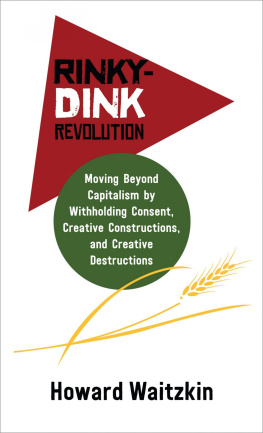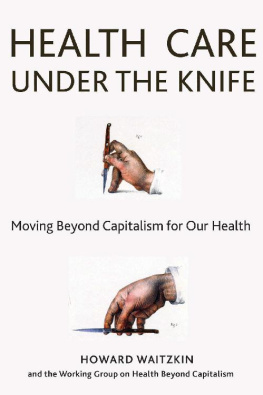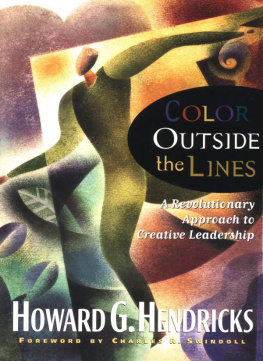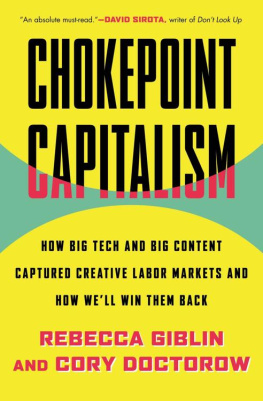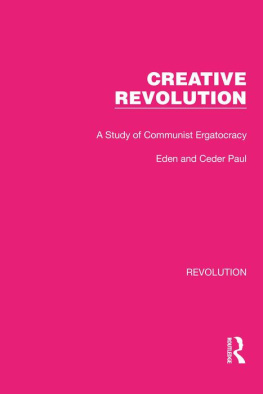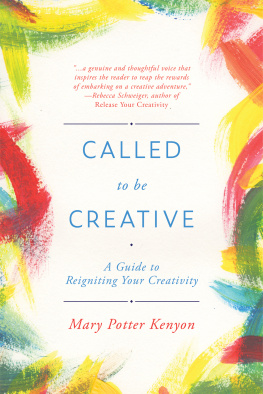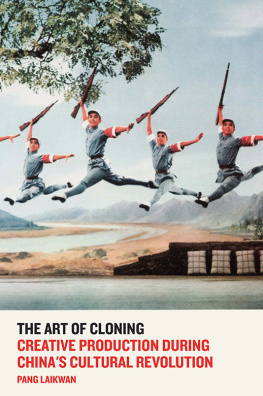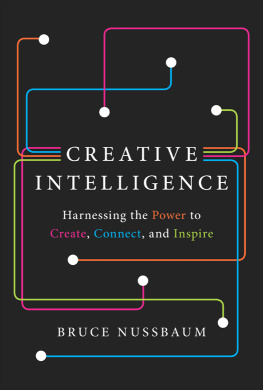During this fierce period of history , many people want clarity and leadership in suggesting concrete steps toward ending the daily oppressions of capitalism. We seek a path leading to a post-capitalist society that aims not to destroy mother earth, humanity, and other life forms. If that doesnt happen, we face an ongoing transition to fascism and an accelerating environmental catastrophe. These stakes have become much easier to understand for inhabitants of planet earth, and dire predictions about our fate have become commonplace. One of the most eloquent is Istvn Mszross statement about the Leviathan that comprises the capitalist state: a way must be found to extricate humanity from the ever more dangerousin fact potentially in a literal sense self-annihilatingarbitrary decision-making practices of the Leviathan state. There can be no hope for the survival of humanity without that.[1]
And yet, the path of how to move from capitalism to post-capitalism continues to baffle even the most brilliant and devoted revolutionaries. Its easier to imagine the end of the world than the end of our economic system. This statement, attributed to Fredric Jameson, conveys how simple it is to visualize scenarios leading to the end of humanity and other beings (global warming with rising oceans and hot, uninhabitable land masses; nuclear armageddon with radioactivity killing almost all animals and plants; etc.).[2] The quote also conveys a vacuum of creative thinking that continues to stand in the way of moving beyond global capitalism, which each year benefits an ever tinier part of the worlds population (now roughly 0.5 percent).
Answering the question of how to get from A to B, capitalism to post-capitalism, is a task that we audaciously need to pursue now.[3] Mszros and those influenced by his work on transition beyond capital, in Venezuela and elsewhere, have grappled with this question and have achieved as of yet incomplete results, given the dynamics associated with global capitalism and imperialism.[4] We no longer can comfort ourselves with the claim that future generations will solve the problem, even if we ourselves dont live long enough to enjoy the solution. We must take on this historical challenge once again, even though revolutionaries spanning Marxism, anarchism, utopianism, and other traditions, with only a few exceptions, have tried and failed thus far to overcome capitalism as an economic system and the leviathan state as the enforcer of that system.
We are living in revolutionary times. The present contains tremendous dangers: nuclear war, global warming and other environmental catastrophes, and fascisma world based on deepening expropriation of nature, inequality, repression, and suffering. These dangers have also generated global resistance and social movements aiming to create a world based on harmony with nature, cooperative relationships of mutual aid, and decision-making by ordinary people about the directions our societies will take.
Who am I to write about how revolution might happen? Whatever I have achieved doesnt qualify me over anybody else in trying figure out how to get from A to B. I intend this pamphlet as one among others, as we struggle to move from capitalism to post-capitalism. For hopes about others efforts, please see the vision statement at the end of this pamphlet.
- Istvn Mszros, Preface to Beyond Leviathan, Monthly Review 69, no. 9 (February 2019): 47-57.
- Fredric Jameson, Future City, New Left Review 21 (May-June 2003): 65-79.
- For an inspiring discussion of audacity and the need for more of it, see Samir Amin, The Implosion of Contemporary Capitalism (New York: Monthly Review Press, 2013).
- Istvn Mszros, Beyond Capital (New York: Monthly Review Press, 2010), especially chapters 13, 19, and 20. For helpful discussions of applications of Mszross work in Venezuelas Bolivarian Revolution, especially about communal transition, see: John Bellamy Foster, Chvez and the Communal State: On the Transition to Socialism in Venezuela, Monthly Review 66, no. 11 (April 2015): 117; Michael Lebowitz, The Socialist Imperative (New York: Monthly Review Press, 2015), chapters 56; and Marta Harnecker, A World To Build (New York: Monthly Review Press, 2015), chapters 79.

